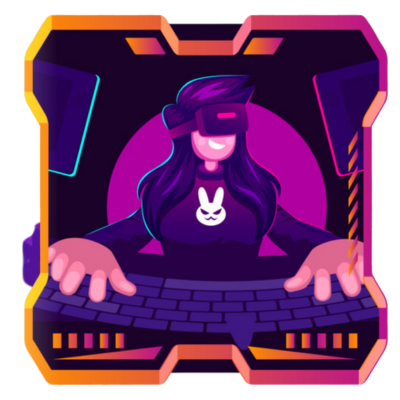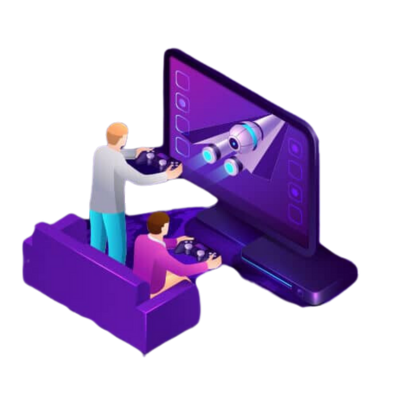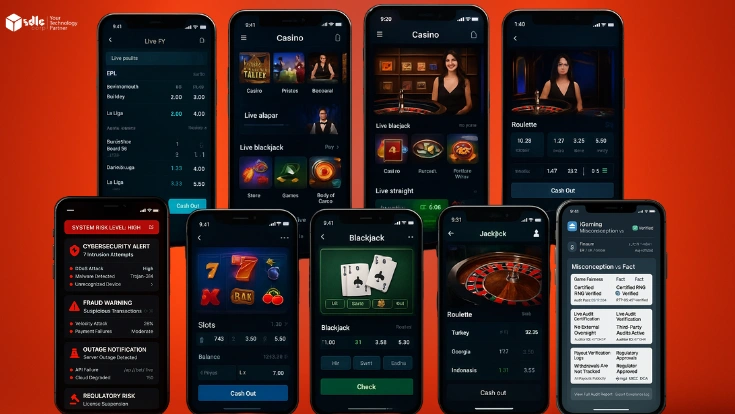Introduction
The world of gaming is undergoing a radical transformation. What was once a space solely for entertainment has evolved into a thriving ecosystem where players can earn real value through play-to-earn (P2E) crypto games.
This paradigm shift introduces not just new gameplay mechanics but also the potential for decentralized ownership and financial rewards, thanks to blockchain technology. With the support of a smart contract development company, these games can incorporate automated, secure transactions that enable seamless trading and ownership of in-game assets. As traditional gamers look towards this new horizon, navigating the path forward may appear daunting, but the potential rewards make it worth the journey.
Level up to earn real rewards!
Our team of expert is on hand to assist you

Understanding Traditional Gaming: An Ever-Evolving Landscape
For decades, gaming has thrived on innovation, with powerful consoles such as the PlayStation, Xbox, and Nintendo continually setting new standards. These platforms have not merely provided a medium for gaming; they’ve shaped entire cultures by pushing the boundaries of what’s possible. From enhancing graphics to enabling social gaming, consoles have played a crucial role in advancing virtual experiences.
As gaming technology evolves, the introduction of Web3 game development services further expands the possibilities. These services integrate blockchain and decentralized technologies, allowing developers to create games where players have true ownership of in-game assets. This transition from a traditional centralized model to a more open, decentralized one is gradually reshaping how games are built and played.
The Emergence of Play-to-Earn Crypto Games: A Game-Changing Revolution
With blockchain technology making its way into the gaming industry, a significant shift is underway—one that challenges the conventional principles of traditional gaming. Enter the world of P2E games, where players don’t just play for fun; they play to earn. In these games, players can gain cryptocurrency or non-fungible tokens (NFTs) as rewards, offering real-world value.
The emergence of NFT marketplaces, often developed by specialized NFT marketplace development companies, has made it easier for players to buy, sell, and trade in-game assets. With a blockchain development company providing the underlying technology, games can now feature decentralized economies where players have a say in the value and trade of their assets. It’s no longer about grinding for in-game currency; it’s about earning assets that can be used across different games or even outside the gaming world.
The Role of Consoles in Shaping Virtual Worlds: A Legacy of Innovation
Consoles have always been at the forefront of shaping virtual worlds. They introduced us to experiences we could only dream of—fantasy realms brought to life with cutting-edge graphics and deeply emotional storytelling. The integration of features like multiplayer modes not only connected gamers around the world but also laid the groundwork for more immersive social gaming experiences. The same connectivity that brought players together for a “Call of Duty” showdown is now being reimagined in P2E games, where players can collaborate and compete in decentralized digital environments.
With advancements in blockchain game development, the virtual worlds that consoles helped shape are becoming even more dynamic. Blockchain introduces new elements such as smart contracts, developed by a smart contract development company, which can automate in-game transactions, allowing for smoother exchanges of digital assets. This technology is crucial for P2E models, where seamless and secure asset trading is a must.
Bridging the Gap: Transitioning from Traditional to Play-to-Earn Games
How does a gamer accustomed to traditional gaming navigate the shift to P2E? The first step is understanding the new technology. Players need to become familiar with crypto wallet development to manage their digital assets securely. Crypto wallets not only store cryptocurrencies but also hold NFTs, enabling players to easily access and trade their digital possessions.
The transition involves more than just adapting to new gameplay mechanics—it’s about embracing a new mindset. Unlike traditional games where progress is dictated by developers, P2E games feature open economies where player behavior and market demand determine asset value. Token development plays a significant role here, as many P2E games issue their own in-game currencies or tokens that can be traded or staked for rewards. This creates opportunities for players to earn through various means, whether it be in-game achievements or participating in decentralized finance (DeFi) activities supported by DeFi development companies.
Start earning while you game today!
Our team of expert is on hand to assist you

The Future of Consoles in the Play-to-Earn Revolution
As P2E gaming continues to gain traction, one might wonder—what role will consoles play in this new era? Historically, console manufacturers like Sony, Microsoft, and Nintendo have driven gaming innovations. The future could see these giants integrating blockchain technology and enabling players to link their crypto wallets directly to their consoles, making it possible to engage in P2E activities seamlessly.
Imagine a world where consoles are equipped to support a metaverse NFT marketplace development company’s platforms, allowing for the trading and use of NFTs within games. Such integration would not only enhance gaming experiences but also unlock new revenue streams for players and developers alike. The addition of features like NFT staking, supported by an NFT staking platform development company, could further enhance the P2E ecosystem by allowing players to earn rewards for holding or utilizing their NFTs within the game.
Case Studies: Pushing the Boundaries with P2E Integration
Let’s explore some examples of companies that are embracing the P2E model while retaining familiar elements of traditional gaming. Games like “Ember Sword” leverage blockchain while still offering experiences reminiscent of console-based MMORPGs. This hybrid approach bridges the old and the new, making it easier for traditional gamers to transition.
Furthermore, some blockchain development companies are working on projects that enable the use of digital assets across different games. The concept of interoperability in gaming, driven by blockchain technology, could allow players to use items from one game in another, provided both games support a shared blockchain infrastructure.
Best Practices for Transitioning to P2E Games
For those venturing into P2E, preparation is key. Start by familiarizing yourself with blockchain basics, especially crypto wallet development. Learn about digital wallets, exchanges, and security measures to protect your assets. As you dive into P2E games, consider the economic model of each game. Some emphasize skill-based rewards, while others focus on asset trading or staking.
It’s also wise to understand the role of companies specializing in blockchain game development and Web3 game development services. These firms play a crucial role in building decentralized platforms that offer players secure and enjoyable gaming experiences. Knowing which companies are behind the games you play can give you insight into the quality and reliability of the platform.

Conclusion: Embracing a New Era While Honoring the Legacy of Gaming
The shift from traditional games to P2E crypto games is not just a technological evolution—it’s a cultural one. As players realize the potential of owning and monetizing their digital experiences, the line between playing and earning blurs, leading to opportunities far beyond what was possible a few years ago.
Consoles continue to play a pivotal role in this transition, acting as bridges between the gaming experiences we’ve cherished and the new, blockchain-powered horizons we’re beginning to explore. With the integration of Web3 game development services, developers can now create decentralized gaming ecosystems that bring blockchain’s benefits to console gamers. While P2E may not yet be as widespread on consoles as traditional gaming, the evolution has already begun. The blending of console gaming with decentralized technologies is set to redefine the gaming landscape, offering players both nostalgic experiences and futuristic opportunities.

















